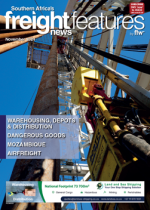Mozambican transporters have expressed concern over a decision by the Zimbabwean government to implement a regulation that requires import duties be paid upfront on all fuel transiting through the country.The regulation, introduced by the Zimbabwe Revenue Authority (Zimra) in August, requires duties and levies to be paid on all fuel – petrol, diesel, paraffin and Jet A1 – that is in transit and imported through ports of entry by road in Zimbabwe. The duties are refunded on exit.But transporters – particularly those engaged in cross-border logistics – say this unexpected shift in policy has placed a significant financial burden on their operations.According to Tjaart van der Walt, project manager at Specialized Transpor t (ST), the added expense of import duties has proven to be quite challenging."If you're operating a f leet of tankers, absorbing this cost – even for a short duration of the journey – can become significant very quickly,” he told Freight News.At the time of introducing the measures, Zimra argued that they were aimed at addressing transit fraud. The government argues that transit fraud remains a significant issue in the country, necessitating the new regulation to prevent importers from falsely declaring goods as in transit to neighbouring countries, only to off load the cargo within Zimbabwe. According to officials, the incidence of such cases has risen, depriving the country of substantial potential revenue."This new regulation by Zimra has placed a heavy strain on our business,” said Van der Walt. “Having to pay duties upfront for fuel in transit ties up significant cash f low, which is already stretched thin. While the refund is processed at the port of exit, the delays and the administrative burden are adding to our operational costs. It’s becoming increasingly difficult to manage these added expenses and still maintain competitive pricing for our ser v ic e s."Other transporters Freight News spoke to shared the concern, saying if this regulation remained in place, it could lead to a situation where clients would be expected to cover the full cost upfront.Van der Walt said that at ST, every effort was being made to manage costs while serving a diverse market within the transport industry. The company's f leet features bulk fuel tankers, general cargo trucks (with and without sides), tipper trucks for the mining and construction sectors in Mozambique, and vehicles designed for out-of-gauge cargo.“The past year has presented significant challenges,” he said. “We continue to grapple with the complexities of implementing electronic sealing, which, while essential, remains intricate. We now also have to contend with the issue of import duties in Zimbabwe, not to mention the f luctuating fuel prices between Mozambique and Tanzania. All these obstacles, though demanding, have driven us to adapt and innovate.”He said despite the challenges the company had managed to secure significant volumes of work and continued to operate smoothly. “Our ability to overcome challenges ref lects the resilience and dedication of our team,” said Van der Walt. “By remaining agile and responsive to market changes and regulatory requirements, we ensure that our clients receive top-notch service.”Looking ahead, he expressed optimism for the transport sector. “While challenges are an inevitable part of our industry, we are committed to addressing them effectively and continuing our growth.” LV

